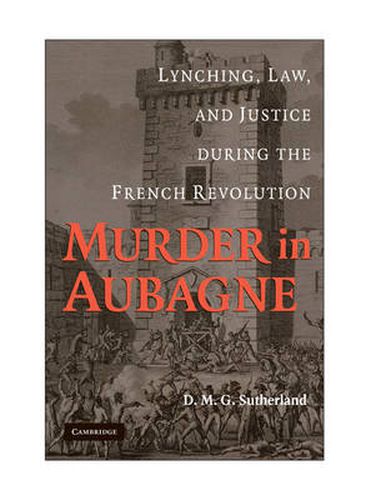Readings Newsletter
Become a Readings Member to make your shopping experience even easier.
Sign in or sign up for free!
You’re not far away from qualifying for FREE standard shipping within Australia
You’ve qualified for FREE standard shipping within Australia
The cart is loading…






This book is a study of faction, lynching, murder, terror and counter-terror during the French Revolution. It examines factionalism in small towns like Aubagne near Marseille, and how this produced the murders and prison massacres of 1795-8. Another major theme is the convergence of lynching from below with official terror from above. Although the terror may have been designed to solve a national emergency in the spring of 1793, in southern France it permitted one faction to continue a struggle against its enemies, a struggle that had begun earlier over local issues like taxation and governance. It uses the techniques of micro-history to tell the story of the small town of Aubagne. It then extends the scope to places nearby like Marseille, Arles, and Aix-en-Provence. Along the way, it illuminates familiar topics like the activity of clubs and revolutionary tribunals and then explores largely unexamined areas like lynching, the sociology of faction, the emergence of theories of violent fraternal democracy, and the nature of the White Terror.
$9.00 standard shipping within Australia
FREE standard shipping within Australia for orders over $100.00
Express & International shipping calculated at checkout
This book is a study of faction, lynching, murder, terror and counter-terror during the French Revolution. It examines factionalism in small towns like Aubagne near Marseille, and how this produced the murders and prison massacres of 1795-8. Another major theme is the convergence of lynching from below with official terror from above. Although the terror may have been designed to solve a national emergency in the spring of 1793, in southern France it permitted one faction to continue a struggle against its enemies, a struggle that had begun earlier over local issues like taxation and governance. It uses the techniques of micro-history to tell the story of the small town of Aubagne. It then extends the scope to places nearby like Marseille, Arles, and Aix-en-Provence. Along the way, it illuminates familiar topics like the activity of clubs and revolutionary tribunals and then explores largely unexamined areas like lynching, the sociology of faction, the emergence of theories of violent fraternal democracy, and the nature of the White Terror.